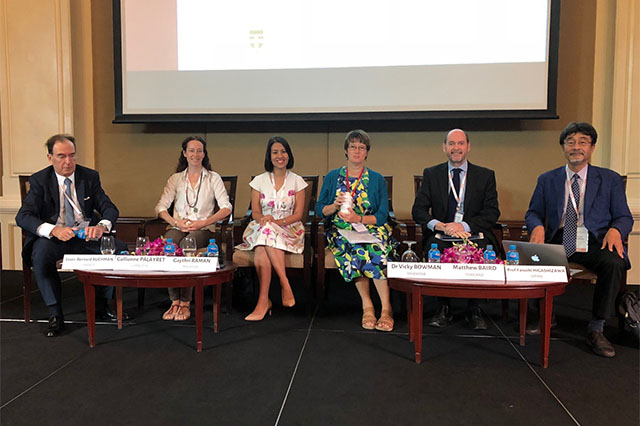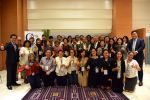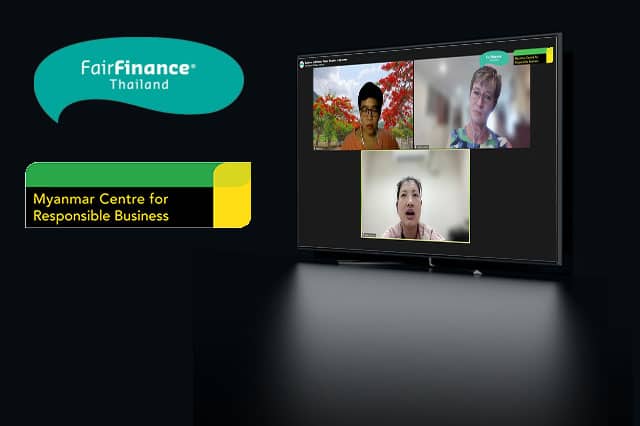Making the Links between Business, Human Rights and the Environment for Asia’s Legal Professionals

Vicky Bowman, MCRB Director, attended the 31st LAWASIA conference in Siem Reap, Cambodia from 3-5 November, attended by over 450 lawyers, mostly from commercial practice, from throughout the Asia region.
LAWASIA has included business and human rights in its annual conference program for the last three years, focusing on aspects unique to the Asia Pacific and to the role of regional legal profession in Sydney (2015), Colombo (2016) and Tokyo (2017) and will hold its inaugural Human Rights Conference in Delhi on 9-10 February 2019.
On 4 November Vicky spoke on the panel on the environment and the legal environment in Southeast Asia. The session had a particular focus on promoting transparency and effective EIA processes, including meaningful public participation, protecting environmental human rights defenders, the role of ASEAN, and the development of Cambodia’s draft Environmental and Natural Resource Code and its dispute resolution provisions.
Vicky was asked to share the Myanmar experience on reducing conflict between companies and communities through greater transparency and better dispute resolution and grievance mechanisms. Her presentation identified some of the legal provisions which had been adopted in the last five years in Myanmar which should – if implemented - have the effect of reducing negative impacts of investment and increasing transparency and stakeholder engagement. She highlighted the need for companies to establish operational grievance mechanisms which meet the eight effectiveness criteria in Principle 31 of the UN Guiding Principles on Business and Human Rights, something which can only be achieved by companies talking to potential users of the grievance mechanism to discover what they would consider legitimate, accessible etc.
Vicky highlighted that standard language on these Principle 31 criteria are now being included by the Myanmar government in their Environmental Compliance Certificates (ECC), which sets out their contractual obligations, such as in the ECC recently received by oil company Pacific Hunt, for their onshore seismic exploration. She also gave examples from MPRL, Shwetaung/Apache Cement and Tigyit coalfired power station of how Myanmar companies were increasing their transparency and engagement with local communities as a means to avoid conflict and misunderstanding.
Finally she highlighted the problems of addressing environmental damage caused by small scale activity which did not meet the threshold for EIA, Myanmar Investment Commission permits etc, such as MCRB’s attempts to raise the problem of harmful beach sand mining. Noting that the Myanmar legal framework itself had a potential gap on this issue, she looked forward to potential lessons to be learned from future adoption of the Cambodian Environmental Code.
Vicky was also a speaker at the plenary on 5 November which was devoted to Business, Human Rights and the Environment in Asia. LAWASIA used the plenary session to introduce its pilot project on business and human rights, which will culminate in the launch of a Lawyers’ Toolkit and Guidance Note on Business, Human Rights and the Environment in 2019. The project aims to provide practical resources tailored to lawyers in the Asia Pacific.
Vicky noted that the MCRB Briefing Paper In Biodiversity, Business and Human Rights, together with a suite of supplements including on the mining, oil and gas, tourism and agriculture sectors was complementary to the proposed toolkit. It set out both legal requirements in Myanmar and international standards, including expectations of investors. But it also highlighted the business case for addressing business impacts on biodiversity and ecosystems services, since many industries depended on those same ecosystem services to survive, particularly water. This was why the subtitle of the Briefing Paper was a Myanmar proverb: ‘Often a branch is broken off the tree by the one who has rested in its shadow”.
Vicky emphasised that companies, and their professional advisers, including lawyers, should see human rights, social impacts and environmental impacts as inter-related. In Myanmar, as in other countries there was –rightly - no legislative requirement for a separate social impact assessment or human rights impact assessment. What was important was to consider the impacts of particular business activities from the perspective of the ‘rights-holder’. This meant consulting directly with them, particularly local communities i.e. effective and inclusive public participation.
 English
English မြန်မာ
မြန်မာ မြန်မာ (unicode)
မြန်မာ (unicode)










